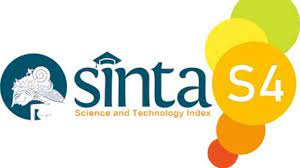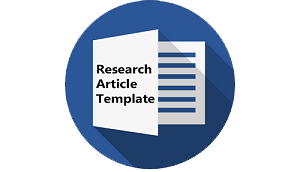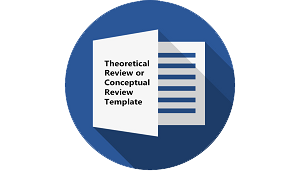TOEFL Scores of English Department Students Cenderawasih University
DOI:
https://doi.org/10.30957/ijoltl.v5i1.615Keywords:
TOEFL score, comparison, studentsAbstract
This study aims at comparing the TOEFL scores of the English Department students at the Faculty of Teacher Training and Education, Cenderawasih University. The questions that need to be answered are first, whether there are any differences of TOEFL scores amongst English department students from different semesters. Secondly, whether there are any different scores between male and female students, third between the students with different learning backgrounds, and forth between students with different levels of interest in English. The participants are the students of semester 2, semester 4, semester 6, and semester 8, commencing in the academic year 2017/2018. TOEFL prediction test was given to the participants to get the scores. The scores of each variable were then compared by the application of ANOVA and t-test. The result of this study can give a picture of how English teaching can be improved.
Downloads
References
Arikunto. (2006). Dasar-dasar Evaluasi Pendidikan. Jakarta; P.T BumiAksara
Bachman, L. (1990). Fundamental Considerations in Language Testing. Oxford: OUP.
Fraenkel, J.R, and Wallen, N.E. (2006). How to Design and Evaluate Research in Education (seventh edition). New York: McGraw Hill.
Hughes, A. (2003). Testing for Language Teachers. Cambridge: CUP
Johnson, K. (2008). An Introduction to Foreign Language Learning and Teaching (2nded.). Edinburg Gate: Pearson Education
Kapoh, R. J. (2010). Beberapa Faktor yang Berpengaruh Dalam Pemerolehan Bahasa. Interlingua, Vol. 4, pp. 87-95.
McNamara, T. (2006). Language Testing. Dalam Alan Davis & Catherine Elder (eds.). The Handbook of Applied Linguistics (p.763-783). Malden, Oxford, Victoria: Blackwell Publishing.
Munawaroh, M. (2011). Pengaruh Minat dan Motivasi terhadap Prestasi Bahasa Jepang siswa KelasXI Kayu SMK Negeri 2 Adiwerna Tegal (skripsi). Retrioeved from: https://lib.unnes.ac.id/6669/1/7841.pdf
Nisa, L.C. (2012). Faktor Jenis Kelamin dalam Hasil Belajar Mahasiswa Fakultas Tarbiah IAIN Walisongo Semarang. Retrieved from: admathedu.uad.ac.id
Nunan, D. (1992). Research Methods in Language Learning. Cambridge: CUP
Phillip, D. (1996). Longman Introductory Course for the TOEFL Test. New York: Longman.
Rahayu, B. (2014). Tenor in Indonesian university students’ argumentative texts written in English. Frontiers of Language and Teaching, Vol. 5 (1), pp: 15 – 26.
Rinantanti, Y. & Suhirman, L. (2018). Mapping of the Competence of SHS Students in English Subject in Sarmi and Mamberamo Raya Regencies Papua, Indonesia. The Asian EFL Journal. 20(11), 144-161.
Riyani, Y. (2012). Faktor-faktor yang mempengaruhi prestasi belajar mahasiswa. Jurnal EKSOS, Vol.8, No. 1, pp.19 -25.
Saptono, YJ. (2016). Motivasi dan Keberhasilan Belajar Siswa. Regula Fidei. Vol. 1, No. 1. Pp. 189-212.
Saukah, A. (2003). Pengajaran Bahasa Inggris di Indonesia: Tinjauan terhadap unjuk kerja pembelajar serta upaya peningkatannya. Dalam Pidato pengukuhan guru besar dalam bidang ilmu pendidikan Bahasa Inggris pada fakultas sastra disampaikan pada sidang terbuka senat Universitas Negeri Malang pada tanggal 3 Maret 2003. Malang: UM.
Setiyadi, B. (2006). Metode Penelitian untuk Pengajaran Bahasa Asing, Pendekata Kuantitatif dan Kualitatif. Yogyakarta: Graha Ilmu.
Siagian, R.E.F. (2015). Formatif: Jurnal Pendidikan MIPA, 2 (2), pp. 122 - 131
Zainul & Nasoetion (1994. Penilaian Hasil Belajar. Jakarta: Universitas Terbuka.
Downloads
Published
How to Cite
Issue
Section
License
Authors who publish with this journal agree to the following terms:
- Authors retain copyright and grant the journal right of first publication with the work simultaneously licensed under a Creative Commons Attribution-ShareAlike 4.0 International License that allows others to share the work with an acknowledgement of the work's authorship and initial publication in this journal.
- Authors are able to enter into separate, additional contractual arrangements for the non-exclusive distribution of the journal's published version of the work (e.g., post it to an institutional repository or publish it in a book), with an acknowledgement of its initial publication in this journal.
- Authors are permitted and encouraged to post their work online (e.g., in institutional repositories or on their website) prior to and during the submission process, as it can lead to productive exchanges, as well as earlier and greater citation of published work (See The Effect of Open Access).












